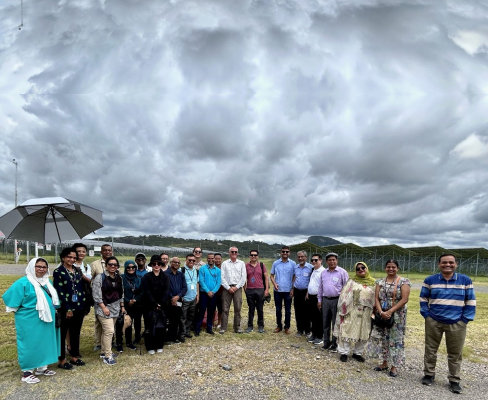
Regional Infrastructure Projects (BBIRI)

Building blocks for Inclusive Regional Infrastructure projects (BBIRI) course addressed the foundational learning needs of the private and public sector stakeholders from the energy and transport sector on a diverse range of topics including PPP, ESG, GEDSI, project management etc. The course included a selection of trainers and speakers ensuring a targeted response to key outcomes of learning from Australian expertise and experience in complex projects; understanding the links between the business enabling environment and infrastructure investment; designing smart cities and development of other soft skills. The training also included aspects from project management methodology, human resource management, procurement, and contract negotiation. The foundational course further discussed the deeper implications of gender and inclusiveness in infrastructure planning.
The first cohort of SARIC training was delivered through a blended learning model (online and in classroom with site visits, guest speakers and engagement with relevant organisations). The blended learning approach included three components.

This phase set the context for the training for the participants. Conducted online, it set and aligned the expectations of the participants vis a vis the overall learning outcome

This phase was conducted in Australia for the first cohort of BBIRI training. The training in Australia was for a two-week period. The training partner anchored this phase that included delivery of classroom learning, exposure through field visits and networking opportunities

Towards internalization of the training inputs, the participants were expected to apply the concepts learned during the SARIC training in their work environment
Through a combination of online and offline learning activities, site visits, case studies and interactions with Australian experts’, participants benefited from
- Increased awareness in general management areas, PPP, ESG, GEDSI, legal and regulatory framework for infrastructure
- Skill enhancement in areas like decision-making, listening skills, cross-cultural leadership skills, personal and interpersonal skills
- Trainings and networking that fosters coalitions and networks
- The ability to understand and apply the knowledge at workplace post training